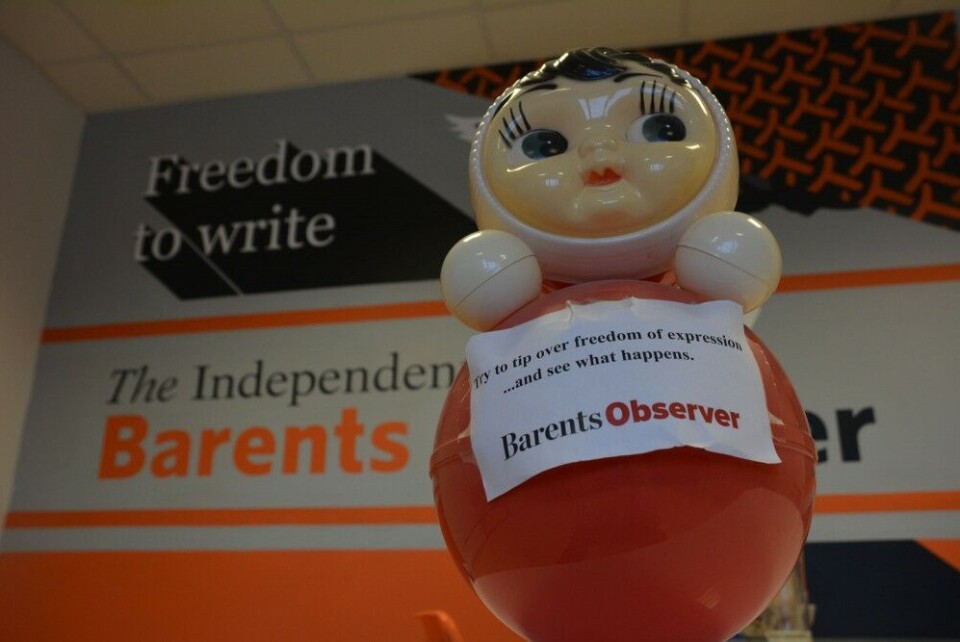
The Barents Observer is now blocked in Russia
A Moscow rat race against the independent Norwegian newspaper leads to its closure on Russian territory.
«Block this newspaper to hell,» says Vitaly Milonov. He is Member of the State Duma, Russia’s lower house of parliament, and known for his hardline stance on liberals and independent-minded groups.
In an interview with the Federal News Agency, Milonov lashes out against the small English- and Russian-language newspaper, saying that it represents «degeneration and decay» and that «its ideology and its clients is based on people with queer psyche.»
According to Milonov, who is also a member of the parliament’s Foreign Affairs Committee, the Barents Observer must not only be blocked in Russia. In addition, also diplomatic measures should be taken.
«We must send them a note of protest, call in the ambassador of Norway and say: what you are doing can affect our relations, if you continue to produce this kind of materials for Russians in the Russian language.»
Blocked in Russia
The plea from Milonov and his supporters has been met by Russian authorities.
From Tuesday morning, the Barents Observer has been unavailable to readers in Russia. Several sources in the country confirm that they can no longer access the site and preliminary data on website traffic indicate that the number of Russian readers already has shrunk significantly.
















